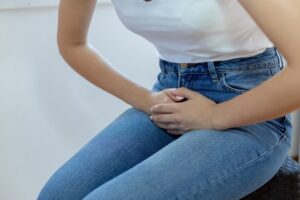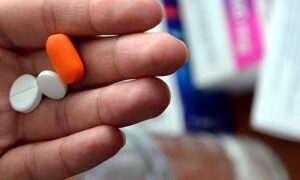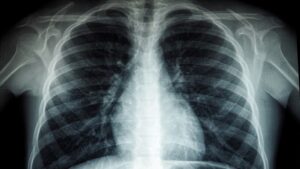[ad_1]
Health care providers stress that the risk of getting an STD from kissing is quite low. But if your date has an obvious sore on or around their lips, it’s best to take action until it heals, just to be safe.
You’re probably doing your best to avoid sexually transmitted infections (STDs) by using condoms and talking to your health care provider about STD testing. But what about the kiss?—can you get an STD from lip contact? You might be surprised to learn that, yes, some STDs can be transmitted through kissing.
“There are STDs that can be transmitted through non-sexual contact [όπως το φιλί] that are also sexually transmitted,” said Martha Ruck, MD, assistant professor of obstetrics and gynecology at Baylor College of Medicine. The overall risk of getting an STD from kissing is pretty low, but it does happen.
“That’s definitely a possibility, and there are some STDs we’re more concerned about than others when it comes to kissing,” said Michael Angarone, DO, associate professor of infectious diseases at Northwestern Feinberg School of Medicine.
In general, health care providers say you’re more at risk from mouth-to-mouth kissing, but there are some STDs (cold sores) that can be spread by kissing someone’s cheek, head and even eyes, said Dr. said Graves.
Here’s a breakdown of the STDs that can be spread through mouth-to-mouth contact.
Herpes
Herpes is caused by two similar viruses – herpes simplex virus type 1 (HSV-1) and herpes simplex virus type 2 (HSV-2). Both can be transmitted by kissing.
HSV-1 usually causes labial sores on or around your mouth. It is often referred to as oral herpes. A survey by the Centers for Disease Control and Prevention (CDC) found that 47.8% of people aged 14 to 49 have HSV-1. Most people with HSV-1 became infected as a child or young adult through non-sexual contact with saliva, such as kissing. You can have HSV-1 without any symptoms.
HSV-2 is traditionally known as genital herpes. However, HSV-2 can also cause oral herpes sores. “Sometimes if you have oral sex, you can get HSV-2 around your mouth,” Dr. Graves said. Oral HSV-2 can then be transmitted through mouth-to-mouth contact. However, “it’s rarer to get HSV-2 from kissing than HSV-1,” Dr. Angarone said.
HSV-1 and HSV-2 are typically only contagious during an outbreak. “The greatest risk of transmission is when there are active lesions — labial sores in the mouth —,” said Dr. Rack.
Syphilis
Although extremely rare, syphilis can be transmitted through kissing. The STD is spread by direct contact with a syphilis sore – and these sores can be found on or around the penis, vagina, anus, rectum, lips or mouth. Symptoms may include:
- Hard, round and painless sores at the site of infection
- Skin rash
- Swollen lymph nodes
- Fever
The risk of contracting syphilis from kissing is quite small. While it can happen, “oral syphilis is very rare,” Dr. Graves said.
It depends on the situation. HSV-1 and HSV-2 can be treated with antiviral drugs such as acyclovir, famciclovir, and valacyclovir. But while these drugs can help reduce symptoms and the frequency of outbreaks, antibiotics cannot cure this chronic, lifelong infection.
Syphilis can be treated with an injectable form of penicillin. If syphilis is diagnosed at a later stage, more than one injection may be needed.
Oral STD prevention is a little tricky. You are unlikely to ask for someone’s complete sexual history before the first kiss. But health care providers say there are some smart ways to reduce your risk.
- Don’t kiss someone with herpes . While it’s possible to get herpes and syphilis through kissing when someone isn’t showing signs of the STD, it’s more likely to happen when you can actually see a sore. You should not kiss anyone who has an active mouth ulcer.
- Choose monogamy . Being monogamous with a partner who doesn’t have STDs means you won’t be exposed to them.
- Ask questions. Again, kissing tends to happen spontaneously and you’re unlikely to have a long conversation about sexual history before kissing someone. But Dr. Greves noted that it’s more than okay to ask about their sexual health before you kiss them — and be open about your own sexual health history.
[ad_2]
Source link






